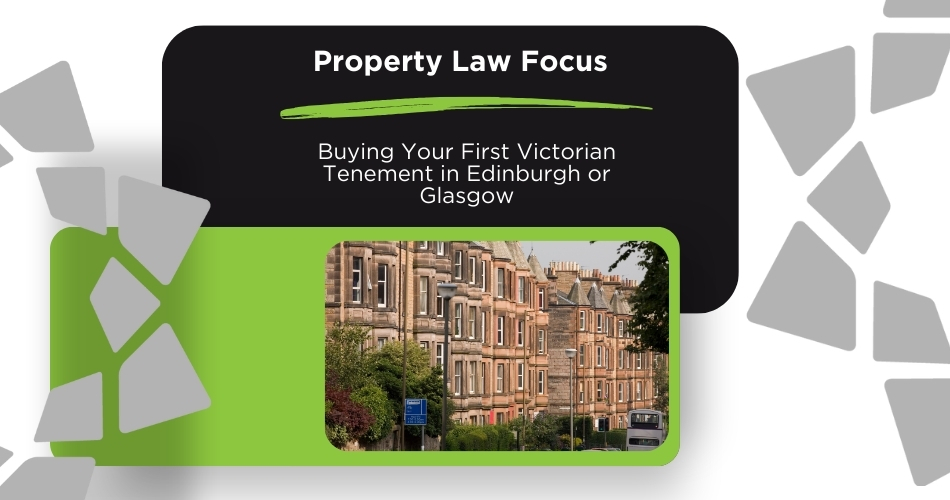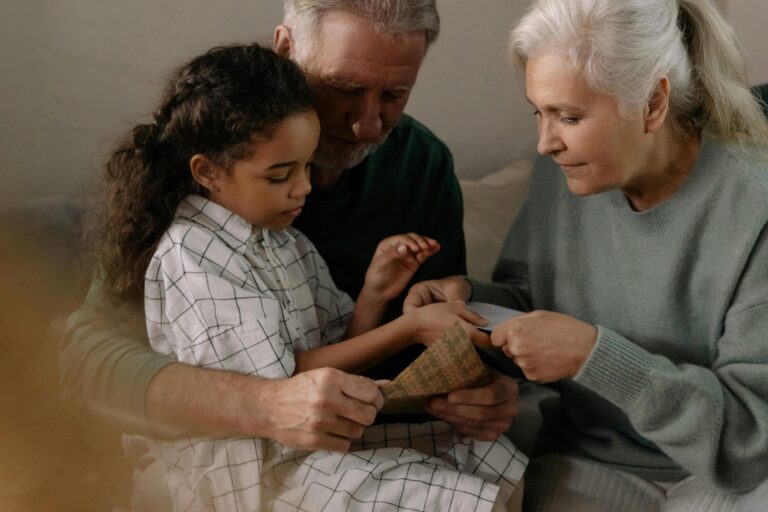
Property Focus: Buying Your First Victorian Tenement in Edinburgh or Glasgow
Victorian Tenements in Scotland the Dream vs. The Reality: You’ve done the saving. You’ve secured the Decision in Principle. Maybe…
Our step-by-step guide can help you through this difficult time and give you clarity on what to do next.



When someone dies in Scotland, you must register the death by a medical professional before you can make any funeral arrangements. This will depend on where they died.
If someone dies at home, call the family doctor/GP. A medical professional must come to verify the death before you can contact a funeral director.
If the person died at night call NHS 111 and ask for an on-call doctor or senior nurse. If the death is expected you can wait until the morning to contact the doctor if you would like some time with them.
The doctor will issue a medical certificate of cause of death, which you’ll need to register the death.
When possible contact the nearest relative(s) and within the next few days find out if there is a Will in place and who is responsible for this.
The doctor will issue the medical certificate of cause of death, which you will need to register the death. The funeral director can then bring the person who has died into their care. This can be arranged directly with the hospital, you don’t need to be there on that day.
If you were not at the hospital with the person when they died the Charge Nurse or the police will contact the nearest relative or next of kin and arrange a time for them to attend the hospital.
If you are the nearest relative or next of kin, you may be asked to:
Staff at the care home or hospice will contact the deceased’s doctor to go in person to verify their death. The doctor will then issue a medical certificate of cause of death which you’ll need to register the death.
What to do
There are more steps to do particularly if you wish to bring their remains home to Scotland.
Register the death
You must register the death according to the laws of the country where the person died. You can either; arrange a local burial/cremation or bring their remains back to Scotland. In addition you may also need to register the death in Scotland, using this link: Register a death – GOV.UK (www.gov.uk)
Get a death certificate
If you want to bring the person back to Scotland, you’ll need a death certificate (or equivalent).
Get permission
Request permission from the appropriate authorities to move the remains out of the country and home to Scotland for cremation/burial.
You must apply to Healthcare Improvement Scotland for permission.
To apply, fill in the application form and declaration from the Healthcare Improvement Scotland website.
If someone dies in England or Wales
You need permission from a coroner to move the person for a funeral outside the country. You need to apply at least 4 days before you want the person to be moved.
Tell Us Once Service
Tell Us Once is a service that lets you report a death to most government organisations in one go.
Speak to any registrar in Scotland who will be able to explain the Tell Us Once service. They will either:
You must use the service within 28 days of getting your unique reference number.
Before you use the tell us once service
You’ll need the following details of the person who died:
You may also need:
You need permission from any surviving spouse or civil partner, the next of kin, executor or anyone who was claiming joint benefits or entitlements with the person who died, before you give their details.
Link to tell us once service here: What to do after someone dies: Tell Us Once – GOV.UK (www.gov.uk)
Hire a lawyer
Now is the time to hire a lawyer, especially one with expertise, helping families whose relatives have died outside Scotland. Our bereavement specialists have the training, knowledge and skills to deal with any complications as they arise.
Regardless of where the deceased passed away our solicitors and our international network will be able to guide you through the process.
Our firm’s international network contains solicitors from all corners of the world meaning you don’t have to worry. Wherever an asset is held, we can help guide you through the entire process and remove all of your stresses. We will take care of everything.
If someone dies unexpectedly, a post-mortem examination will be carried out to find out the cause of death. If they’re unable to find out the cause, the doctor will contact the Procurator Fiscal (in England, the coroner) to investigate the cause of death.
The Procurator Fiscal will arrange for a local funeral director to collect the person who has died to take them to the city morgue. You don’t need to use this funeral director, even if the person has been taken to their funeral home after the investigation is finished.
The Procurator Fiscal will issue a medical certificate of cause of death when they’ve finished their investigation, but you can still start arranging the funeral in the meantime. Sometimes, an ‘interim’ certificate is issued whilst further investigations are taking place.

You need to register the death within 8 days in Scotland. This can be done at any registrar in Scotland, save time by making an appointment before you go. Take with you the medical certificate of cause of death and any document relating to the person’s pension, benefits or allowances which the person was receiving at the time. Although you can start making funeral arrangements before you’ve registered the death, registration of a death must be done before burial or cremation can take place.
Tell us once service
Tell Us Once is a service that lets you report a death to most government organisations in one go.
A registrar will explain the Tell Us Once service when you register the death. They will either:
You must use the service within 28 days of getting your unique reference number.
Before you use the tell us once service
You’ll need the following details of the person who died:
You may also need:
You need permission from any surviving spouse or civil partner, the next of kin, executor or anyone who was claiming joint benefits or entitlements with the person who died, before you give their details.
Link to tell us once service here: What to do after someone dies: Tell Us Once – GOV.UK (www.gov.uk)

You should start planning the funeral as soon as possible. But you should not make the final funeral arrangements until you are sure that the death does not have to be reported to the Procurator Fiscal, since this may affect the date when the funeral can be held. The Procurator Fiscal only has to be involved where deaths are sudden, suspicious or unexplained. Check if the person had a funeral plan or a life insurance policy to help pay for the funeral.

Now is the time to hire a lawyer. We offer a free initial consultation with one of our bereavement specialists who will guide you through the process. Many financial institutions will not even communicate with relative’s of the deceased or executors until a legal document (known as confirmation) is granted. Avoid the temptation to manage matters yourself, as this can often be more emotionally draining, time consuming and complicated than it appears.
Contact us nowFree Initial Consultation: Our friendly team are on hand to guide you through the process.
Expertise: Our bereavement specialists undergo regular training to ensure we handle every estate with the care and professionalism required.
Here For You: Remove the unnecessary stress and time that often comes with handling a death.

Confirmation is a legal document issued by the Sheriff Court which provides the Executor with the legal authority to deal with all of the assets in an estate. This includes the ability to close bank accounts, uplift balances and sell or transfer property. By issuing Confirmation, this means that the Court has confirmed that the Executor has the right to administer the estate in terms of the person’s Will or the law if there is no Will. It is important to note that when Confirmation is issued, the Court will also issue individual Certificates of Confirmation for each asset in the estate to allow each to be dealt with.

An Estate simply means everything that someone owns when they die. This includes all property, bank accounts, shares, pensions, cars etc. Where the assets are located makes no difference. It is an Executor’s duty to gather these assets, pay off any debts and distribute the proceeds to the beneficiaries. The more assets the person had, the more work this entails. Keep in mind any mistakes made, the Executor is legally responsible. Seeking legal advice and appointing a solicitor can save a lot of stress and time.
If the deceased was a client of ours we will usually have a digital copy of the Will and the original may be in our safe. If the deceased was not a client of ours we would be delighted to help you find the Will free of charge. Contact us for details.


